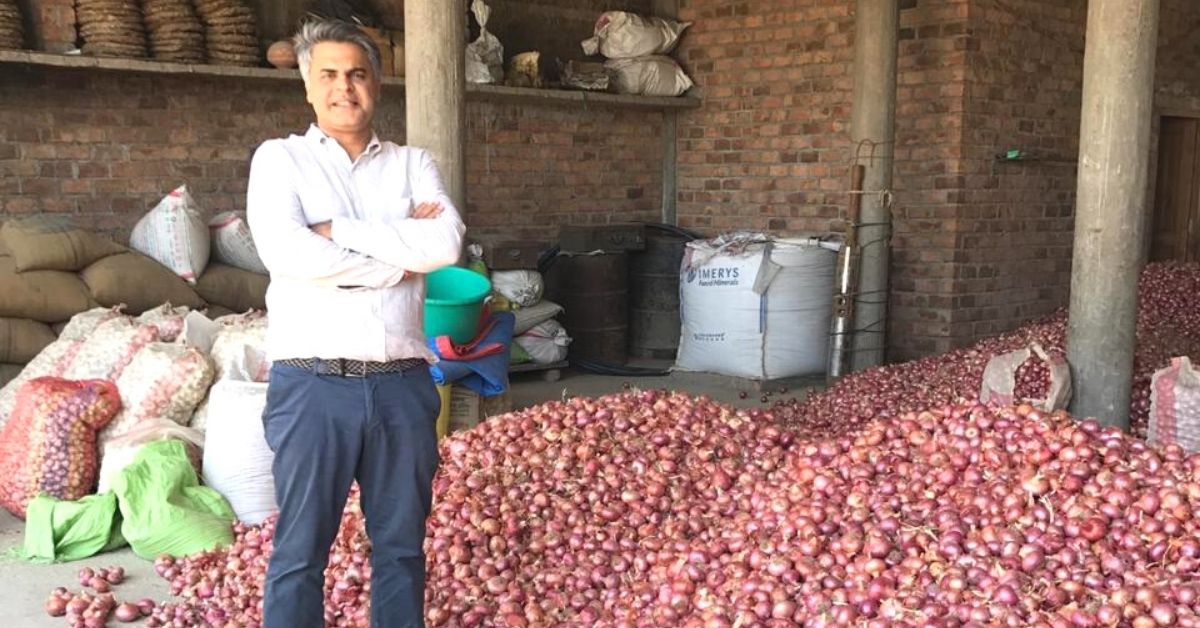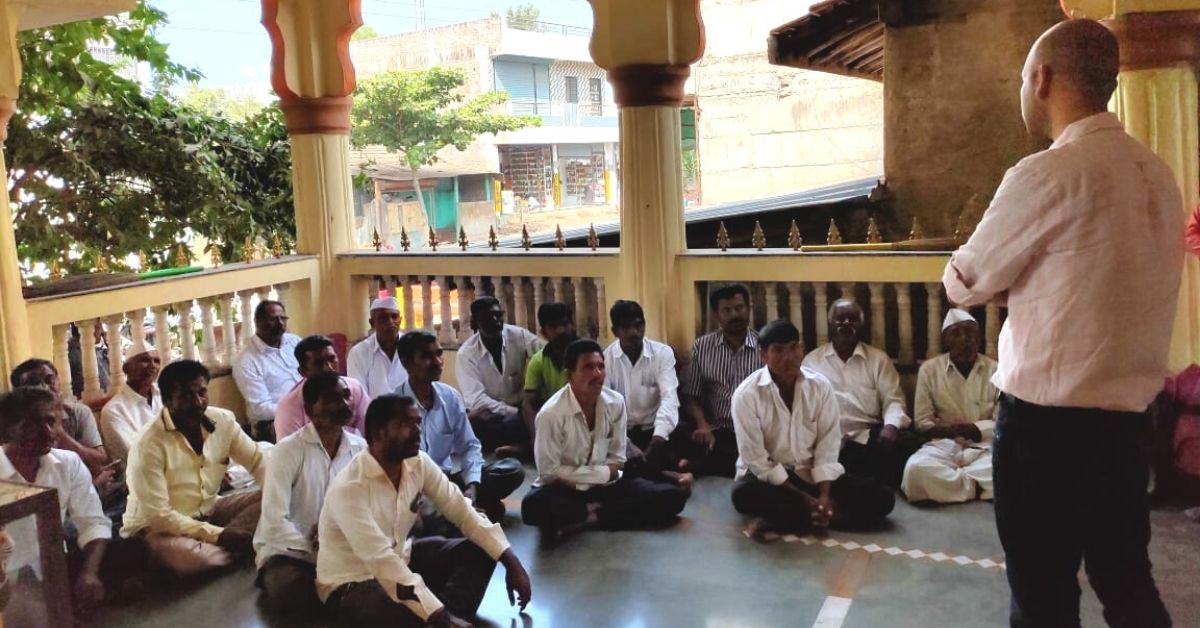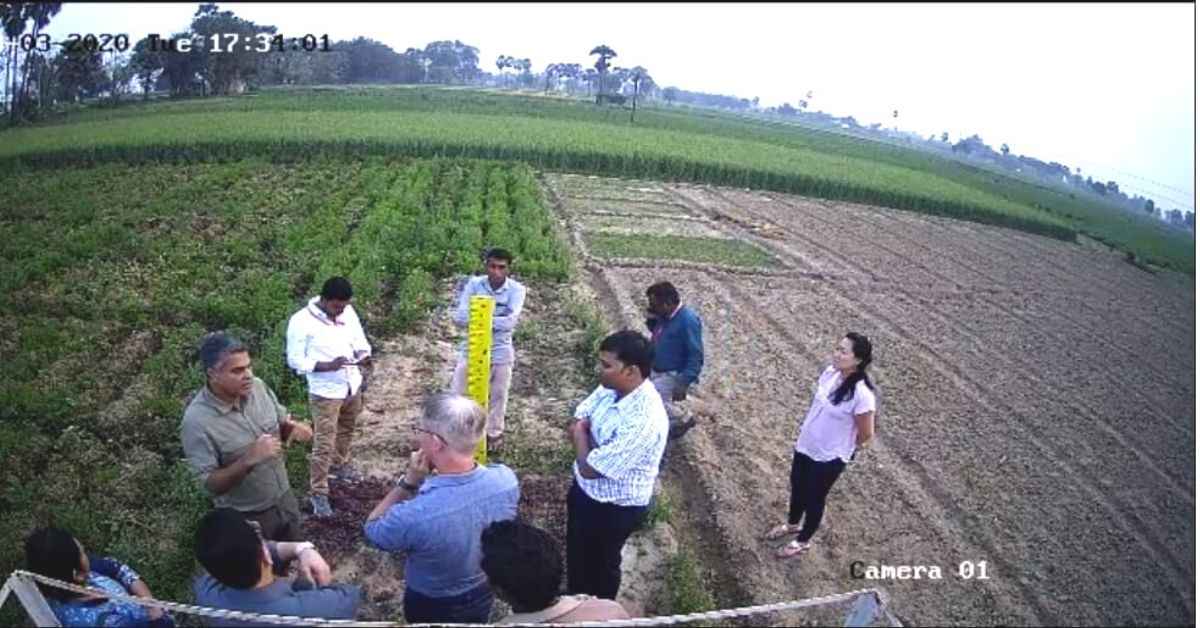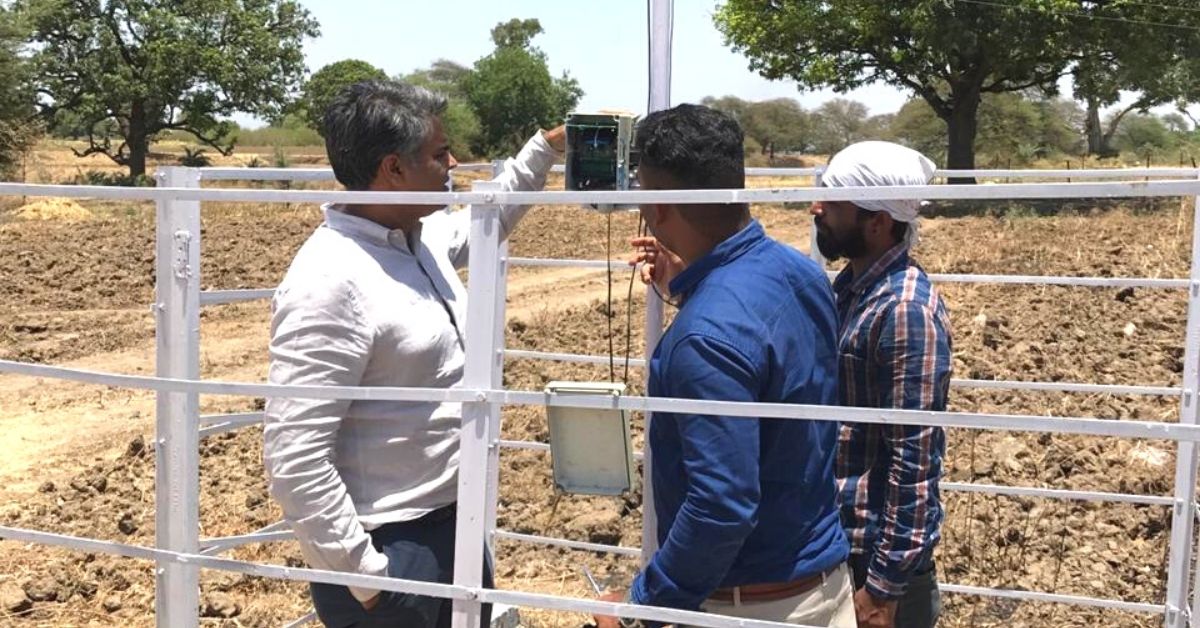Noida Startup Protects 50,000 Farmers Against Bad Weather Starting At Just Rs 35
Jatin Singh and Dhyanesh Bhatt started GramCover in Noida to help marginalised 'non-loanee' farmers reap benefits under the government's crop insurance scheme

Virender Singh from Chamba village, Uttarakhand, owns an apple orchard in five acres of land. Unfortunately, hail storms and extreme weather conditions in 2020 severely affected the harvest and caused heavy damage to the crops. Thanks to the insurance cover he signed up with a startup, GramCover, which helped him recover around Rs 45,000.
“I paid a premium of Rs 200 for each of the 100 trees to secure the orchard from such risks. The insurance helped me recover from the financial losses. It is better to receive any amount than to face a total loss,” he says.
Like Virender, there are about 50,000 farmers across five states who have secured the risks of losing their crop to extreme weather conditions.
Jatin Singh, Managing Director and co-founder, says, “The startup specifically aims to help marginalised farmers like Virender who cannot seek crop insurance directly under the government schemes. The reason being that despite crop insurance being around for a significant time, most of the insured farmers have been ‘loanee’ farmers who remain insured through the banks. But marginalised farmers, having small landholdings, cannot access the same provisions.”

“Small-time farmers also include landless cultivators who take land on a tenancy basis and pursue agriculture. They seek funds from private institutions or personal networks. These farmers are the most vulnerable and have the least access to formal finance as well as insurance. It becomes a challenge to cater to such farmers, and hence we are protecting them against financial losses,” he says.
Jatin adds that about 60 per cent of the farmers in India cannot afford to seek loans from banks and fail to become eligible under the government crop insurance schemes.
Jatin explains, “The startup is ensuring that the non-loanee farmers also get access to insurance. We extend insurance coverage to these farmers, bringing them under the ambit of the Pradhan Mantri Fasal Bima Yojana (PMFBY) who would not be covered under this scheme otherwise.”
Launched in December 2017, about 1.8 million farmers have signed up for the startup’s policies from Bengal, Assam, Uttarakhand, Andhra Pradesh and Telangana. The insurance premium ranges from Rs 35 up to Rs 2,000, depending on the commodity to be insured.
Filling the gap
Jatin launched Skymet in 2003 to provide reliable weather data and information to farmers across India. He soon realised that though farmers could benefit from the early weather warnings and take immediate measures to protect their crops, it still did not cover their losses in harsh weather conditions.
“The farmers could reduce the losses, but the extreme weather incidents like hailstorms, extreme rainfall and drought conditions could not prevent the devastation,” he says.
Around 2012-13, he met Dhyanesh Bhatt, working with ICICI Lombard and assisting farmers in crop insurance, livestock insurance and health insurance. Jatin and Dhyanesh became friends due to commonalities and decided to work for the cause of farmers.

The duo decided to fill the gap and increase the insurance benefits to farmers. The startup provides advantages like transparency and relatively quick turn around times in the claims settlement process.
“The insurance cycle runs from January to July. The farmers sign-up by December end and are provided with weather stations. The instruments generate a report based on the hailstorm, deficit or excess rainfall, wind conditions, among other parameters. Each farmer receives a personal report on the settlement score or losses within 45 days at the end of the period. They may contact us or the partnered insurance companies such as AIC, ICICI Lombard, Tata AIG, United India, among others, to proceed with the settlements. The issues are resolved in October and November before the next insurance cycle begins,” he adds.
Describing the on-ground functioning, Jatin says, “We have established a network of people called Point of Sale (POS). They form a network of people and become a local point of contact. The trained staff digitally enrol customers through the mobile app. The company and staff earn commission by distributed premiums. We offer products like personal accidents, hospital cash, two-wheeler, livestock insurance and others on our platform that range from Rs 35 to Rs 2,000.”
Jatin says the method helps insulate farmers from risk for which they would otherwise self-insure, and consequently, suffer from significant financial impact in the case of any unfavourable event.
De-risking rural India

Pradeep Chauhan from Chakrata in Uttarakhand is another farmer beneficiary since 2019. “I signed up for the premium as agriculture has become unpredictable due to the effects of climate change. I grow beans, wheat, tomato, apple, lemon, mango and other crops. The insurance cover helped me in the first two years when crops suffered losses,” he says.
Pradeep adds that many farmers in the area have become aware and are taking benefits from the scheme. “There was less awareness about the crop insurance schemes. But the company staff helped us know about the government insurance policies and reap maximum benefits from it. Many farmers have started opting for the insurance cover now,” he says.
“Over the past three years, we are achieving a growth of 100 per cent per year, and the gross premium surpassed Rs 100 crores in 2021,” says Dhyanesh Bhatt, CEO and co-founder.
However, he adds that helping marginal farmers create awareness and provide the schemes was an uphill task. “The main challenges of rural India and the insurance sector are the lack of awareness, insurance access, insurance products, challenges of low spending capacity, last mile connectivity and high geographical dispersion. But we overcame these challenges gradually, and plan to reach out to more beneficiaries across the country,” he adds.
Dhyanesh says that the startup plans to reach every gram panchayat across the country. “We are working to ‘de-risk’ rural India. Through our efforts and by leveraging technology, we now aim to create financial resilience and prosperity for our partners.”
Edited by Yoshita Rao
If you found our stories insightful, informative, or even just enjoyable, we invite you to consider making a voluntary payment to support the work we do at The Better India. Your contribution helps us continue producing quality content that educates, inspires, and drives positive change.
Choose one of the payment options below for your contribution-
By paying for the stories you value, you directly contribute to sustaining our efforts focused on making a difference in the world. Together, let’s ensure that impactful stories continue to be told and shared, enriching lives and communities alike.
Thank you for your support. Here are some frequently asked questions you might find helpful to know why you are contributing?


This story made me
-
97
-
121
-
89
-
167











